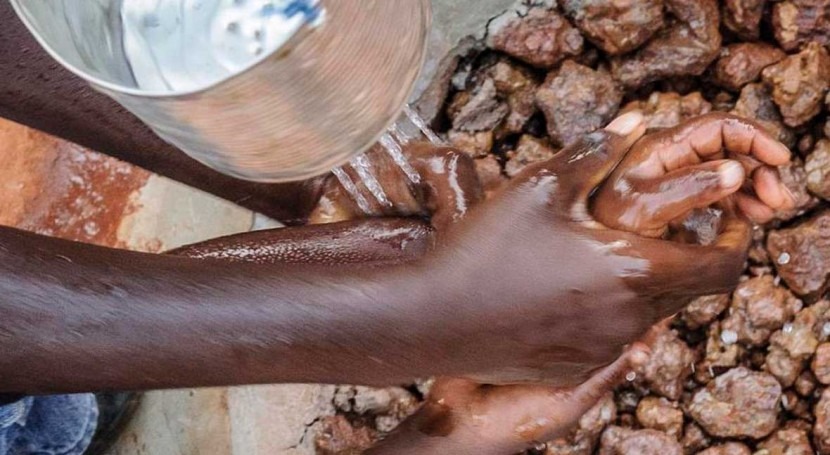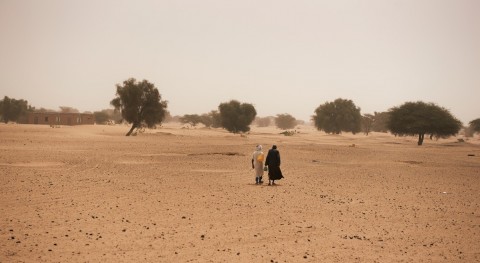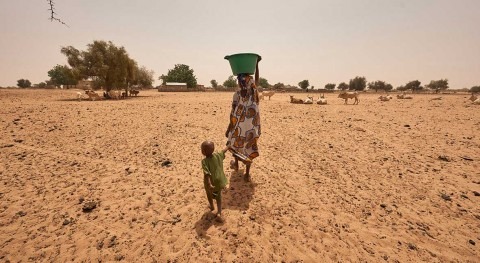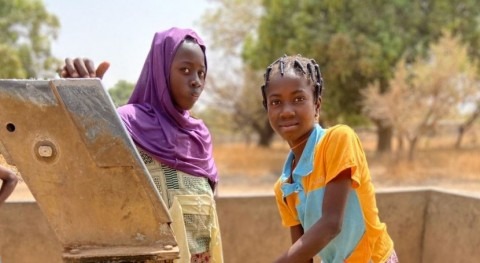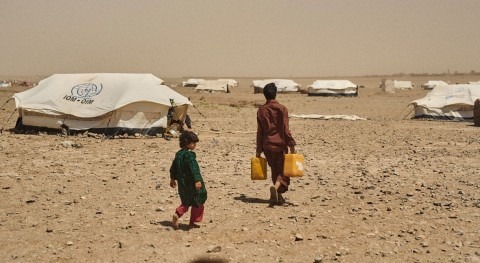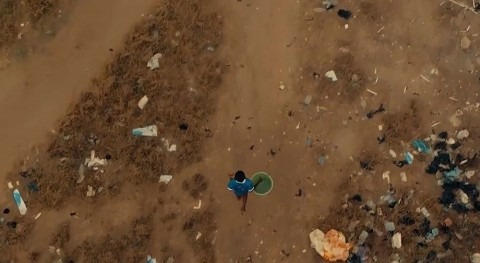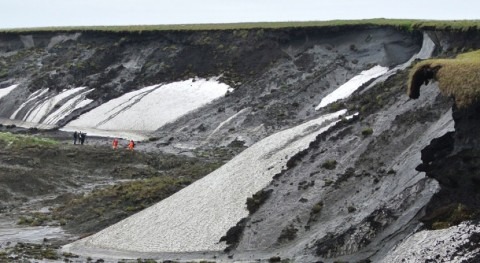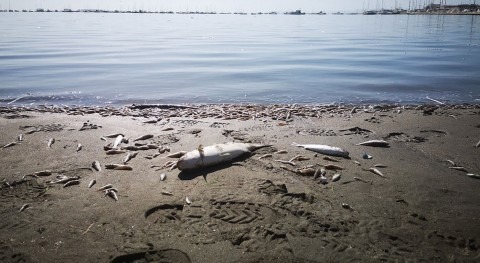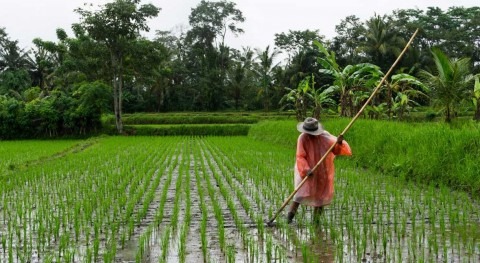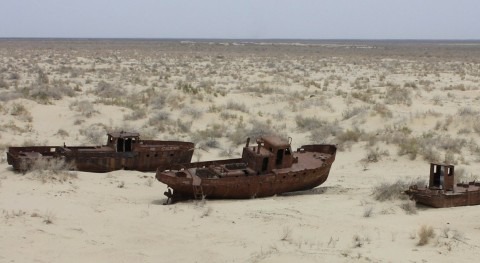The health crisis caused by the COVID-19 pandemic has highlighted the importance of handwashing with soap and water as one of the keys to halting the spread of the disease. However, only three out of five people all around the world have basic facilities for this elementary standard of hygiene. Deaths from failure to do so amount to hundreds of people every day, most of them children.

The absence of handwashing worsens the unhealthy consequences of the lack of sanitation, which along with the consumption of unsafe water cause the death of more than 800 children every day. © Carlos Garriga /We Are Water Foundation
The coronavirus-induced health emergency that at an early stage started hitting the most industrialized countries threatens to spread to African, Central American, Asian and Oceanic regions that seemed partly untouched by the virulence of the pandemic. The WHO and the governments of the affected countries recommend handwashing with soap as an essential measure to halt the spread of the disease.
The WHO and the governments of the affected countries recommend handwashing with soap as an essential measure to halt the spread of the disease
In the industrialized world, handwashing and body hygiene are common household and social practices, but only three out of five people all around the world can do it. This means that 40% of the world population, around 3 billion people, do not have handwashing facilities and soap in their homes. UNICEF warns that in less developed countries this percentage reaches 75% and this deficiency affects not only children, who are the most vulnerable, but also key individuals in the development of communities, such as teachers, health workers and women.
The absence of handwashing worsens the unhealthy consequences of the lack of sanitation, which along with the consumption of unsafe water cause the death of more than 800 children every day. According to hygiene experts from UNICEF and the WHO, a correct handwashing with soap and water would prevent about 44% of the deaths from diarrheal diseases and 25% of the acute respiratory infections that are the leading cause of death among children under the age of five all around the world.
Schools, the number one priority
Since the establishment of the Foundation, in all its projects the installation of latrines is carried out simultaneously to that of basins for handwashing with a safe water supply, which complement the sanitation function by providing a fully hygienic facility. © Carlos Garriga / We Are Foundation
In those areas lacking sanitation, the absence of facilities of handwashing is also endemic. Since the establishment of the Foundation, in all its projects the installation of latrines is carried out simultaneously to that of basins for handwashing with a safe water supply, which complement the sanitation function by providing a fully hygienic facility. This is specified in the Manual for the construction of latrines and wells, which compiles the experience gained by the We Are Water Foundation in its sanitation projects all around the world.
This is essential, especially in schools in which students must simultaneously learn to wash their hands. Being able to do it at school is the best education for the millions of boys and girls for whom diarrhea can be fatal. This is a knowledge they can later pass on to their families, thus creating a culture of hygiene that is essential to leave poverty behind. Thanks to these projects, over 43,500 students and their teachers in many schools in Chaco-Chuquisaqueño, in Bolivia, Tombali, in Guinea-Bissau, Zagora, in Morocco, Mymensingh, in Bangladesh, and in the Northern region of Thailand have a powerful weapon to fight diarrhea and cholera: clean water and soap, and they know how to use it. The projects of the Foundation have also enabled 5,000 students in Rajasthan and Tamil Naduand Haryana in India to use the facilities and learn the importance of washing their hands before eating, cooking, handling food and after defecating. Most importantly, they pass it on to the community.
Essential in the fight against open defecation and natural disasters

After a natural disaster, hygiene becomes a priority to prevent diseases. © Dennis Alioni / World Bank
These guidelines are extended to other sanitation improvement projects that have been carried out and are currently being developed in rural areas and suburbs in the Regionof Brakna, in Mauritania, Bhiwadi,Bathalapalli and Kadiri, in India, in Baixo Tocantins, in Brazil, Old Ningo, in Ghana or in Burkina Faso, where poor hygienic practices are inevitably linked to the lack of sewage or to open defecation.
The lack of handwashing facilities is not the only drawback in many areas of the world. In Ethiopia, there is also a lack of water and soap, a problem that is endemic in some areas where, as indicated by UNICEF, many people use ashes or sand for their personal hygiene.
It is positive that the fight against the spread of the coronavirus is helping to make the international community aware of the importance of handwashing
After a natural disaster, hygiene becomes a priority to prevent diseases. Rehabilitation of access to water and sanitation needs to go along with hygiene strategies, as happened in the Philippines after Typhoon Haiyan or in Mozambique after Cyclone Idai, where the aid of the Foundation included water filters and hygiene kits with adequate instructions for users.
The eradication of this pandemic must also serve to accumulate knowledge about hygiene protocols and strategies and serve to end the endemics of diarrhea, cholera and pneumonia, which are much more lethal, although, paradoxically, better known to medical science than COVID-19. It is positive that the fight against the spread of the coronavirus is helping to make the international community aware of the importance of handwashing.

Handwashing facilities. We Are Water Foundation project © Carlos Garriga / We Are Water Foundation


